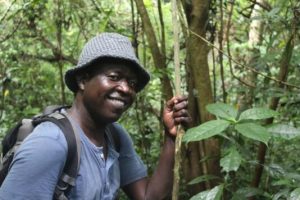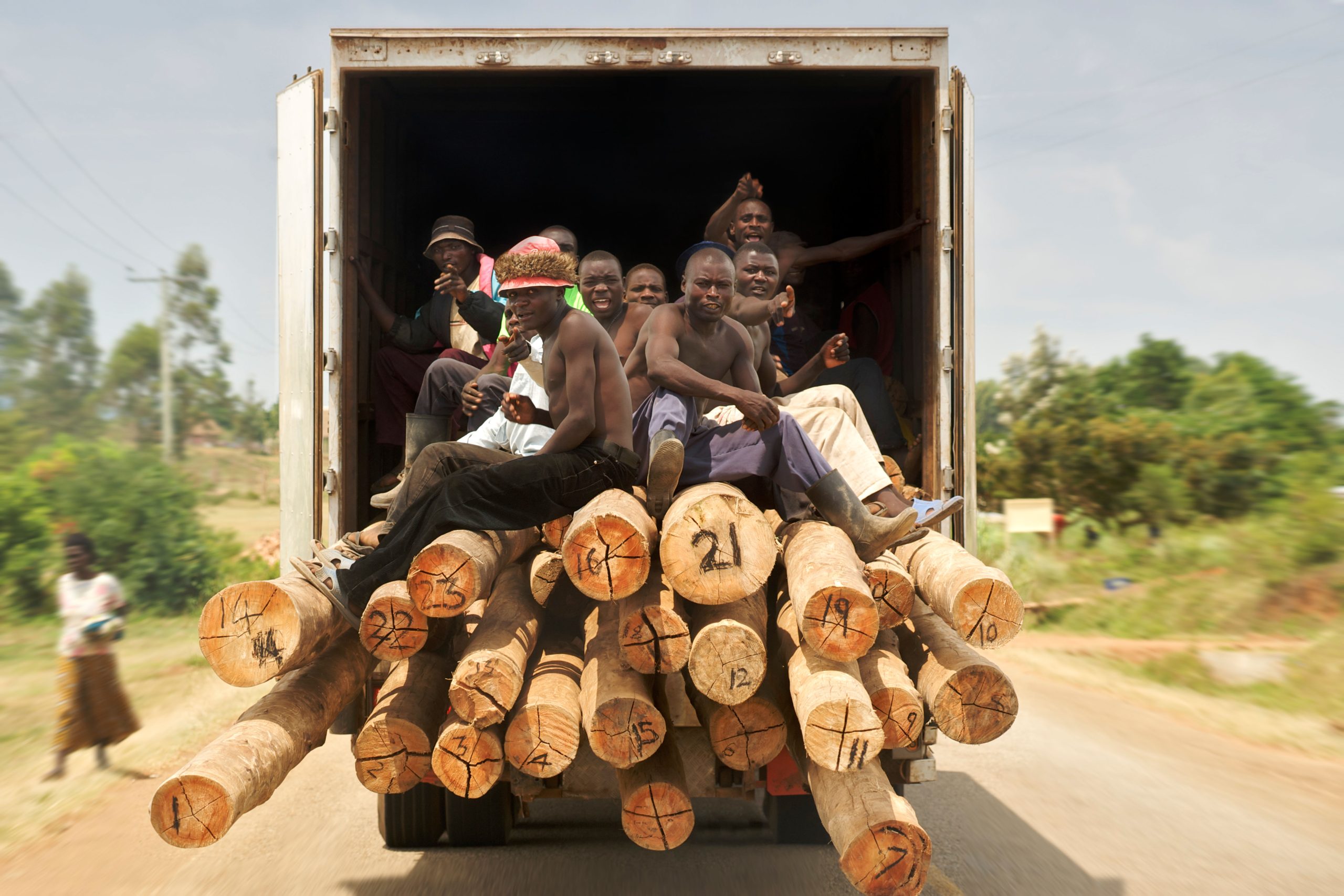Uganda’s natural resources base, one of the richest and most diverse in Africa, continues to be degraded, jeopardising both individual livelihoods and the country’s economic development.
Evidence from the UN Environment Programme reveals that its forests, home to several endangered or soon-to-be extinct animal and plant species, are being mercilessly ravaged by poachers, illegal charcoal traders and loggers, and greedy investors.
Overfishing in the country’s lakes and rivers is rife. Its wetlands are being cleared for agricultural use and the rate of forest cover loss stands at 2.6 per cent annually, according to independent sources.
As part of efforts to ensure that the east African nation’s natural resources are effectively managed and protected, a group of environmental activists has gone to war to protect these natural wonders from bleeding further.
“Environmental activism in Uganda is not a safe identity – it’s a hostile and fragile environment,” William Amanzuru, team leader at Friends of Zoka, told Index.
“Activists are seen as fronting foreign views and opinions, enemies of the state and enemies of development.”
Amanzuru, who won the EU Human Rights Defenders Award in 2019, says environmental abuse in Uganda is highly militarised, so any intervention for nature conservation seems like a battlefield in a highly sophisticated war.

William Amanzuru, team leader at Friends of Zoka
“You directly deal with our finest military elite who run the show because of the huge profits gained from it,” he said. “We are always being followed by state and non-state actors and those involved in the depletion of natural resources like the Zoka Central Forest Reserve.”
Amanzuru said he had received threatening phone calls and had been intimidated by government and local police officials. “My phone is always tapped,” he added.
Anthony Masake, programme officer at Chapter Four Uganda, a human rights organisation, said environmental human rights defenders in Uganda were increasingly operating in a hostile environment.
“They repeatedly face reprisal attacks in the form of arbitrary arrests and detention, character assassination, being labelled traitors, assaults, intimidation and isolation, among others,” he said.
Masake added that illegal loggers and charcoal dealers, land grabbers and corporations often connived with their government backers to shield them from the law and accountability.
“Politicians, police officers and local leaders have often been cited in incidents of reprisal attacks against environmental defenders in Adjumani, Hoima and other districts,” he said.
Hidden from view
Uganda’s environmental battlefields are located in rural and remote areas where life and time seem to stop – far from the public eye and the noise and the vibe of big cities.
“The terrain has exposed them to easy targeting because the operation areas are far removed from urban areas where they would be able to access quick and competent legal services,” said Masake.
“The rise of incidents of corruption, abuse of office, lack of accountability for abusers and deterioration of the state and rule of law has further emboldened perpetrators to continue attacking environmental defenders because they know they can get away with it.”
As watchdogs of society, journalists who attempt to expose environmental crimes and abuse are also often the victims of sheer brutality and violence, according to several sources who spoke to Index.
“I deplore the way [president Yoweri] Museveni’s security forces ill-treat journalists, especially environmental journalists,” said one. “They have done nothing wrong. All they do is to tell the nation and the world that our natural resources are in danger of being extinct if we do not trade carefully. Is that a crime?”
The journalist, who claimed to fear Ugandan security forces and intelligence services “more than God”, spoke only on condition of anonymity.
Silencing the critics
The International Federation for Human Rights (FIDH) and its partners, the Observatory for the Protection of Human Rights Defenders and the World Organisation Against Torture, have vehemently and repeatedly condemned the arrest and arbitrary detention of environmental journalists.
Venex Watebawa and Joshua Mutale, the team leader and head of programmes at Water and Environment Media Network (Wemnet), were recently arrested in Hoima, in western Uganda, on their way to attend a radio talkshow at Spice FM.
The FIDH reported that they were supposed to discuss the risks and dangers of sugarcane growing projects in the Bugoma forest and of allowing oil activities in critical biodiversity areas including rivers, lakes, national parks, forests and wetlands.
Home to more than 600 chimpanzees and endangered bird species, including African grey parrots, Bugoma is a tropical rainforest which was declared as a nature reserve in 1932.
Following the arrest of Wemnet members, all hell broke loose when security forces arrested more environmental activists who went to the police station to negotiate the release of Watebawa and Mutale.
The arrests, which are believed to have been called for by Hoima Sugar, the company decimating the Bugoma forest to convert it into a sugarcane plantation, were a bitter pill to swallow. (Index asked Hoima Sugar to comment on these allegations but received no response.)
“Environment stories are so delicate because the people behind the destruction of the environment are people with a lot of money, who are well connected and have a lot of influence,” Watebawa told Index.
He slammed the National Environment Management Authority – which is mandated to oversee conservation efforts – for having been influenced by Hoima Sugar.
“To our surprise, it gave a report in a record time of two weeks to clear the below-bare-minimum-standard environmental impact assessment report to clear 22 square miles of land in a sensitive and fragile ecosystem,” he said.
“The deployment of paramilitary agencies to give sanctuary to the destroyers of the forest speaks volumes of the government’s commitment to protect the environment.”
Journalists who have attempted to get anywhere near the Bugoma central forests have been harassed or faced the wrath of the army.
“These incidents have demotivated and scared us,” said Watebawa. “Between March and June, two of our members lost their cameras and laptops. Our communications officer, Samuel Kayiwa, was trailed, his car broken into in Kajjasi, and his gear stolen.”
The trade in environmental abuse
In another incident targeting the environmental media, Wemnet reported that someone broke into the house of Agnes Nantambi, a journalist working for New Vision, after midnight, forcing her to surrender her laptop and camera.
Amanzuru was arrested in February after an incident in which locals impounded a Kampala-bound truck ferrying illegal charcoal. He claimed that the military provided protection for those investing in illegal logging, illegal timber harvesting and the commercial charcoal trade.
He said the country’s environment sector was highly politicised, with the government drawing a lot of illicit money from the abuse of natural resources.
“Politicians trade in environmental abuse because this is an unmonitored trade … They make quick money for their political sustainability.”
And as the Museveni government’s aggression towards environmental activists increases day by day, human rights organisations have vowed to fight and to die with their boots on.
Amanzuru’s arrest attracted the attention of the EU ambassador to Uganda, who wrote to environment minister Beatrice Anywar Atim to request a fair and speedy trial.
Entities offering support include the Defenders’ Protection Initiative, Chapter Four Uganda and the National Coalition of Human Rights Defenders in Uganda.
But despite the grim outlook, Watebawa remains optimistic about the future of environmental activism.
He says society is stronger, more organised and more determined than ever, and the media persistently exposes environmental abuse.
He believes all responsible citizens must challenge the impunity to which environmental human rights defenders so often fall victim because the environment, ultimately, is a shared resource.





